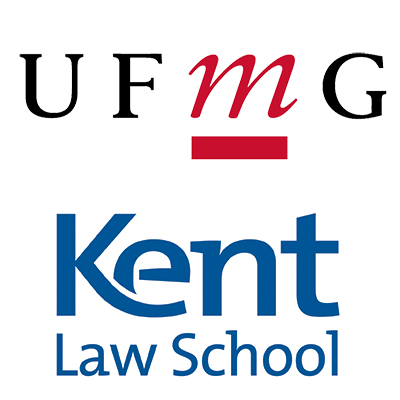A partnership agreement with Kent Law School (KLS) has contributed to the success of Universidade Federal de Minas Gerais (UFMG) in Brazil in achieving a top research ranking for its law school.
UFMG’s Law Faculty has been ranked first for Law in a leading national league table called the Ranking Universtiário Folha (RUF) 2017. It has also received a score of 6 (out of 7) for its postgraduate taught and research programmes from the Brazilian Federal Agency for Support and Evaluation of Postgraduate Education (CAPES).
All postgraduate programs in Brazil are evaluated every four years by CAPES in an evaluation process equivalent in status (though not in method) to the UK’s Research Excellence Framework (REF). Schools that receive a score of 6 or 7 are considered of excellent quality at both national and international level. No law school in Brazil has received a score of 7 in the most recent evaluation.
The Law School’s Co-Director of Graduate Research Programmes at UFMG, Professor Fabricio Polido, attributed UFMG’s collaboration with Kent Law School as a significant factor in their ranking success. He said the KLS-UFMG partnership was repeatedly cited in evaluation documents by CAPES and was a reflection of his School’s commitment to international research networks.
The partnership with the UFMG’s Law Faculty in Belo Horizonte was signed in 2015, enabling both Schools to build on collaborative research activities for academics and postgraduate research students. One of the most significant joint research projects is the three-year Inclusionary Practices Project led by Head of Kent Law School Professor Toni Williams and the UFMG’s Professor Fabricio Polido as co-leader.
Staff from Kent Law School are visiting UFMG this term and further exchange visits are planned in Canterbury (in February 2018) and in Brussels (in September 2018).
There are several areas of shared research interests between the two law schools, including international economic law and global trade; legal history, discrimination and human rights; criminal law and the human body; theories of law and justice; theories of property; transnational legal ordering; globalisation and theories of the state; law, science and technology; globalisation and labour regulation. Both schools continue to explore opportunities to develop additional collaborative research activities including funding applications, research groups and joint seminars.
UFMG is the largest federal University in Brazil. It is ranked amongst the top 11 Latin American universities and amongst the top 6 Brazilian universities by QS world rankings. UFMG recruits students by way of a very competitive admission national exam, which makes the university one of the most sought after by applicants.

